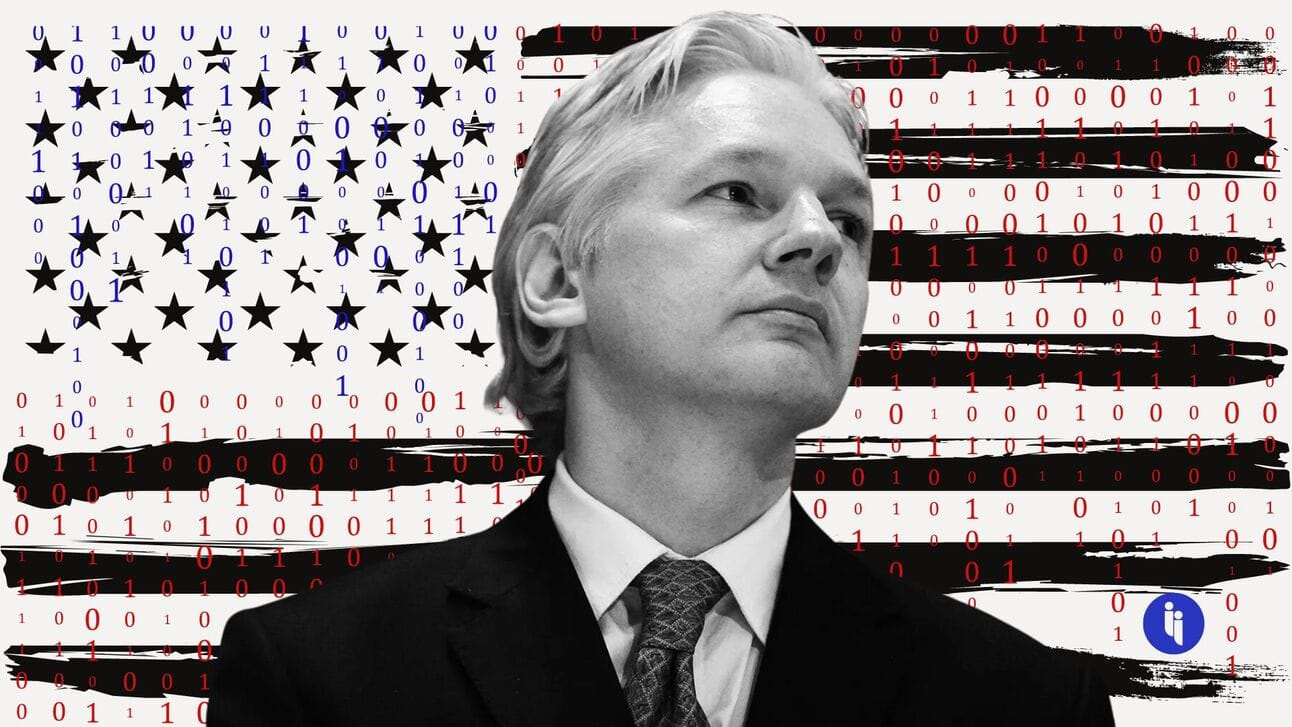President Joe Biden just said the US is “considering” Australia’s request to end the pursuit of WikiLeaks founder Julian Assange, a move that could close over 14 years of legal and diplomatic drama.
Julian Assange has been the subject of multiple investigations and charges, not to mention countless books, articles, and movies (though even Benedict Cumberbatch’s solid Australian accent couldn’t save The Fifth Estate).
Assange, an Australian citizen, founded Wikileaks in 2006 with the motto “The method is transparency, the goal is justice“. Its priority was to shine a light on “oppressive regimes”, with a nod to “unethical behaviour” in the West, too.
But Assange’s profile exploded as his organisation’s focus shifted further to the West, with (in)famous leaks from 2010 and beyond including:
- A video from a US helicopter gunship showing the crew killing several unarmed civilians in Iraq
- 390,000 US Army field reports from Iraq
- 91,000 US documents related to the war in Afghanistan, and
- 250,000 classified US diplomatic cables from 1966 up to 2010.
The same year, authorities in Sweden (where Assange had spent some time) issued an arrest warrant on allegations (which he denies) of sexual assault, and the UK’s supreme court went on to authorise his extradition to Sweden in 2012.
That’s when Assange entered Ecuador’s embassy in London disguised as a motorbike courier, claiming asylum on the grounds that the Swedish allegations were just a pretext to hand him over to the US (which hadn’t yet laid charges).
So Ecuador’s left-leaning government at the time let him live in the embassy while Wikileaks went on to drop more leaks. These included leaks around the 2016 US election, plus an epic ‘Vault 7’ leak which the CIA said was the largest in the agency’s history.
And as Assange’s influence grew, Russia reportedly planned to exfiltrate him to Moscow, while the US reportedly looked at ‘extraordinary rendition’ and beyond.
A new government in Ecuador then revoked Assange’s asylum in 2019 and allowed the UK – who’d waited seven years rather than ‘pull an Ecuador’ – to hoist Assange out and off to a high-security prison, where he remains.
On the very same day, the US unsealed multiple criminal charges for Assange’s “alleged role in one of the largest compromises of classified information in the history of the US”. Assange claims the charges are politically motivated.
Either way, that’s a lot of international intrigue for a skinny guy from Down Under.
So why would the US drop everything now?
Different folks have different reasons to want Assange released, including:
- Diplomatic: it’s become an irritant for US allies (Australia and the UK)
- Philosophical: did he commit sins, or just expose them?
- Legal: his defenders chant “journalism is not a crime”
- Humanitarian: his physical and mental health is crumbling; and
- Political: he’s now lionised in some political camps, including for the reasons above.
What’s next? Last month his lawyers won a partial victory when a UK court ruled he couldn’t be extradited unless the US guarantees he won’t face the death penalty. Subject to how the US responds, the next hearing is scheduled for 20 May.
So for now? The US is “considering” its approach.
INTRIGUE’S TAKE
Take your pick: Assange is either a truth-seeking, wrong-exposing missile of journalistic righteousness, now martyred by an embarrassed deep state. Or he’s a hacker and predator who broke the law, harmed democracies, put individuals at risk, and aided (wittingly or otherwise) autocracies like Russia.
From our own time on the inside, we’ll say this:
- helping someone breach a classified system (as Assange allegedly did) sounds like a crime, and
- any of us lucky enough to live in the free world will have benefited from many official secrets kept, and some exposed.
So to us, there’s probably a way out that honours the above principles – perhaps a deal that holds Assange to account for facilitating (if not publishing) the leaks, while recognising that Assange has already done time, and his Wikileaks has faded from relevance.
Also worth noting:
- Assange pleaded guilty to 24 Australian charges of hacking in 1995 (aged 23) but avoided jail on the condition he didn’t re-offend.
- Under Assange, Wikileaks won a 2011 Walkley Award (broadly Australia’s equivalent to a Pulitzer Prize).
- If Assange loses his appeal in the UK, his final forum would be the European Court of Human Rights.





